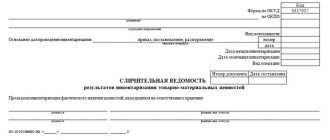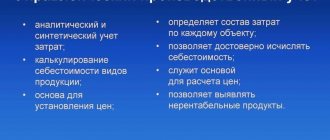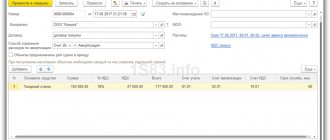Cost structure for certification
There are indirect and direct costs of certification. Indirect ones involve spending on quality assurance. This:
- Elimination of detected defects.
- Quality control.
- Measures to prevent defects.
There are also direct costs for certification. They are specified in paragraph 4.2 of the Certification Rules, approved by Resolution No. 44. Costs include the following:
- Work carried out by an accredited center.
- Samples needed for testing.
- Expenses for the tests themselves, which are carried out in the laboratory.
- Checking the state of production and its certification.
- Checks performed during control.
- Review of the application.
- Costs for storing and packaging samples that will be sent to the laboratory.
All expenses considered can be reflected in the costs of certification.
Test sample - how to take into account?
The Russian Ministry of Finance explained how expenses associated with conducting negotiations with potential counterparties are taken into account (even if no agreements are concluded as a result). And he told us how to take into account samples of goods (materials, instruments, components, equipment, etc.) received from potential contractors for testing (trial testing).
Negotiation costs
The costs associated with conducting negotiations on concluding a contract include, for example, costs of transportation, food, translation services, etc.
Income tax
Negotiation costs are entertainment expenses that are included in other expenses associated with production and sales, and are taken into account in an amount not exceeding four percent of the organization’s labor costs for the reporting (tax) period (subclause 22, clause 1 , clause 2 of article 264 of the Tax Code of the Russian Federation).
Please note: the tax base for income tax is determined on an accrual basis from the beginning of the calendar year. Therefore, the amount of labor costs, and therefore the maximum amount of entertainment expenses for the corresponding period, is also determined on an accrual basis. This means that if not all entertainment expenses can be recognized in the current period, perhaps they can be recognized at the end of the next reporting period or at the end of the calendar year, if they do not exceed the maximum allowable amount.
In tax accounting, expenses are recognized as justified and documented expenses (Clause 1, Article 252 of the Tax Code of the Russian Federation). According to the Ministry of Finance of Russia and the Federal Tax Service of Russia, in order to recognize entertainment expenses, in addition to the primary accounting documents confirming the expenses incurred (for example, an invoice for an official reception), it is necessary to draw up a primary document, from the content of which it follows that the expenses were incurred by the organization specifically for entertainment purposes. Such a document could be, for example, a report on entertainment expenses approved by the head of the organization (letter of the Ministry of Finance of Russia dated April 10, 2014 No. 03-03-RZ/16288, Federal Tax Service of Russia dated May 8, 2014 No. GD-4-3/8852).
To recognize entertainment expenses, it does not matter whether, as a result of negotiations, agreements with potential counterparties are concluded or not.
Value added tax
The amount of “input” VAT on entertainment expenses can be deducted only in the part related to entertainment expenses recognized for profit tax purposes (clause 7 of Article 171 of the Tax Code of the Russian Federation).
Accounting
There is no special accounting procedure for the costs of negotiations in accounting. Such expenses are recognized, as a rule, as part of expenses for ordinary activities in the manner provided for reflecting similar expenses (for example, costs for third-party services).
Example 1
. Accounting for entertainment expenses.
The cost of an official lunch in a restaurant with potential suppliers was 118,000 rubles (including VAT - 18,000 rubles). The lunch took place in the first quarter.
The organization's labor costs in the first quarter amounted to 800,000 rubles. This means that entertainment expenses can be taken into account for profit tax purposes in the first quarter in the amount of 32,000 rubles (800,000 x 4%).
The accountant will make the following entries.
DEBIT 26 CREDIT 60
— 100,000 rub. (118,000 – 18,000) – reflects the costs of holding an official dinner with potential counterparties;
DEBIT 19 CREDIT 60
– 18,000 rub. – reflected “input” VAT on the cost of lunch;
DEBIT 68 subaccount “VAT calculations” CREDIT 19
– 5,760 rub. (18,000 x 32,000 / 100,000) – accepted for deduction of “input” VAT in terms of entertainment expenses taken into account for profit tax purposes;
DEBIT 09 CREDIT 68 subaccount “Calculations for income tax”
– 13,600 rub. ((100,000 – 32,000) x 20%) – a deferred tax asset is reflected in connection with the occurrence of entertainment expenses that are not taken into account when determining the tax base for income tax in the first quarter, but can be recognized based on the results of subsequent periods.
Accounting for received samples of goods
The commented letter discusses the situation when potential suppliers provide the organization with samples of materials, instruments, components, etc. for testing (trial check) to make an informed decision on concluding a contract. In this case, the organization carries out destructive testing, and the samples are not returned to the supplier.
Income tax
As a general rule, the value of property received free of charge is taken into account as part of non-operating income (clause 8 of Article 250 of the Tax Code of the Russian Federation). The exception is the cases specified in Article 251 of the Tax Code of the Russian Federation.
Receiving test samples for the purpose of concluding contracts for the future purchase of such property is not one of the cases specified in Article 251 of the Tax Code of the Russian Federation. Therefore, for tax purposes, it is safer to reflect the market value of samples as part of non-operating income - on the date of their receipt (subclause 1, clause 4, article 271 of the Tax Code of the Russian Federation).
When transferring samples for testing, material costs include their cost in the amount of previously recognized non-operating income (subclause 3, clause 1, clause 2, article 254 of the Tax Code of the Russian Federation)
Value added tax
According to the Russian Ministry of Finance, given in the commentary letter, the gratuitous transfer of ownership of test samples of goods is a sale and is subject to VAT (subclause 1, clause 1, article 146 of the Tax Code of the Russian Federation). In this case, VAT is not presented to the organization for payment and is not accepted for deduction by it.
Accounting
Test samples received free of charge are reflected in inventories at actual cost - that is, at market price (clauses 2, 5, 9 PBU 5/01 “Accounting for inventories”, approved by order of the Ministry of Finance of Russia dated 06/09/2001 No. 44n). Data on the market price must be confirmed by documents or experts (clause 23 of the Regulations on accounting and financial reporting in the Russian Federation, approved by Order of the Ministry of Finance of Russia dated July 29, 1998 No. 34n).
The market price of samples is recognized as other income on the date of their receipt (clauses 7, 10.3, 16 PBU 9/99 “Income of the organization”, approved by order of the Ministry of Finance of Russia dated 05/06/1999 No. 32n).
When transferring samples for testing, their actual cost is included in expenses for ordinary activities (clauses 5, 16 of PBU 10/99 “Organization expenses”, approved by order of the Ministry of Finance of Russia dated May 6, 1999 No. 33n).
Example 2.
Accounting for test equipment samples.
The organization, as a test sample, received equipment intended for use in the main production, the cost of which, according to the transfer documents, is 25,000 rubles. The accountant will make the following entries:
DEBIT 10 CREDIT 91-1
— 25,000 rub. – the test sample is accepted for registration;
DEBIT 20 CREDIT 10
– 25,000 rub. – the test sample has been submitted for testing.
Tax accounting
Certification costs require payment of VAT and income tax.
Features of VAT calculation
The company has the right to reduce the total amount of VAT by the amount of tax that was presented to the company when purchasing goods or services for the execution of transactions considered subject to taxation. The deduction is carried out on the basis of invoices issued by product sellers. An invoice can only be issued after the goods have been accounted for. A deduction can be made in respect of VAT amounts accrued on certification expenses if these conditions are simultaneously met:
- The corresponding services were recorded in accounting under DT account 97.
- Accounting entries were made based on existing primary documents.
- There is an invoice that is issued in accordance with the law.
- Certification is needed for activities that will be subject to VAT.
The transfer of product samples to the laboratory for testing will not be subject to VAT. This is due to the fact that this procedure does not involve the sale of products. The company is not deprived of ownership of the designs. The subject of taxation is the transfer of products for the needs of the company, if expenses on the goods are not deductible when determining income tax. In this situation, you need to take into account expenses when assessing taxes.
If a company stops producing products before the expiration of the document of compliance, the VAT deduction will not be restored. This is due to the fact that termination of issue with a valid certificate is not included in the list of situations in which VAT can be restored (clause 3 of Article 170 of the Tax Code of the Russian Federation).
Income tax
Certification costs must be taken into account in the structure of other costs arising during production and sales. In this case, the type of certification being carried out is not important: voluntary or compulsory. Related expenses reduce taxable profit only when the requirements of paragraph 1 of Article 252 of the Tax Code of the Russian Federation are met.
For the purpose of taxation of profits, expenses for a voluntary procedure are taken into account only when the event is carried out in the form of quality assurance on the basis of the law on technical regulation.
Voluntary certification cannot duplicate a mandatory event. The exception is inspections during which there is an analysis of various parties.
A company can include expenses for samples provided to the laboratory as expenses that reduce taxable income. They are needed for testing to determine compliance with the requirements. Sample costs include the cost of the sample itself, as well as the costs of storing and packaging it.
The possibility of reducing taxable income is due to the fact that samples are likely to be damaged during testing. That is, it will not be possible to implement them in the future. The corresponding conclusion was made by the FAS in a resolution dated January 23, 2007. If the samples were damaged, it is necessary to draw up an act for their write-off. The corresponding position is given in the letter of the Department of Tax Administration dated April 23, 2001.
IMPORTANT! When carrying out certification, even if it is mandatory, you need to pay a fee. It cannot be included in expenses. The amount of the duty reduces the profit subject to tax.
Taxation will be determined by what methods the company uses:
- If a company uses the cash method, certification costs are recognized only after they are actually incurred. For example, research costs are recognized only after actual payment for laboratory services has occurred.
- If a company uses the accrual method, expenses are recognized as taxable in the period in which they are incurred. It does not matter when exactly the payment occurred.
The letter of the Ministry of Finance No. 03-03-02/268 states that expenses must be distributed throughout the validity period of the certificate. If the company ceases issuing the document before the document expires, the balance of expenses that have not been transferred is recognized for tax purposes as a lump sum. However, gradual acceptance of spending is only one position. There is another one, according to which losses can be recognized at a time. In this case, there is no distribution among reporting periods. This position is confirmed by paragraphs. 2, paragraph 7 of Article 272 of the Tax Code of the Russian Federation.
Accounting press and publications
"Accounting. Taxes. Law", N 30, 2003
COSTS FOR VOLUNTARY CERTIFICATION
Increasingly, organizations are certifying their products not because it is required by law. A certificate obtained voluntarily becomes a guarantee of the quality of the products produced or the services provided. And, naturally, attracts customers. Is it possible to take into account the costs of voluntary certification in tax accounting?
Determining whether the certification of your product or service is mandatory or voluntary is very simple. Everything that is not named in the List approved by Decree of the State Standard of Russia dated July 30, 2002 N 64, is certified at the discretion of the organization itself.
It matters who issues the certificate
In tax accounting, certification costs are included in other expenses associated with production and sales (clause 2, clause 1, article 264 of the Tax Code of the Russian Federation). Moreover, under this expense item you can take into account the costs of both mandatory and voluntary certification. The fact is that the Tax Code does not establish restrictions on this type of expense, that is, it does not indicate that certification costs can be taken into account only if they are provided for by law.
True, tax specialists in the Methodological Recommendations for the Application of Chapter 25 of the Tax Code of the Russian Federation (approved by Order of the Ministry of Taxes and Taxes of Russia dated December 20, 2002 N BG-3-02/729) expressed their position on this issue. They believe that for profit tax purposes, only those costs of certification are taken into account that are incurred in accordance with the Law of the Russian Federation of June 10, 1993 N 5151-1 “On Certification of Products and Services” (clause 2 of section 5.4 of the manuals). That is, for accepting the costs of voluntary certification, it matters which organization provided the certification service (clause 1 of Article 18 of the Certification Law). Indeed, in accordance with the Certification Law, it can only be carried out by organizations that have been accredited by Gosstandart of Russia. It is difficult to disagree with this position. After all, only professionals should confirm the quality of products and services. Otherwise, these will be economically unjustified expenses (clause 1 of Article 252 of the Tax Code of the Russian Federation).
Samples are spoiled
For certification, an organization can provide its products, which after certification will lose their original qualities and will not be suitable for further use. The accountant can write off its cost as expenses also under Article 264 of the Tax Code of the Russian Federation. This is due to the fact that products submitted for certification are an integral part of the entire certification process. Without product samples, certification is impossible in principle.
Expenses for voluntary certification are reflected in tax accounting in the reporting (tax) period in which they arose. And since the certificate has a certain validity period, then the costs of obtaining it must be written off during this period (clause 1 of Article 272 of the Tax Code of the Russian Federation).
Note. Organizations and entrepreneurs that have switched to a simplified taxation system cannot include certification costs as expenses. Moreover, this applies not only to voluntary certification, but also to mandatory one.
One of the disadvantages of the simplified taxation system is that the list of expenses that can be taken into account when calculating the single tax is closed. And the costs of certification were not included in it (Article 346.16 of the Tax Code of the Russian Federation).
Therefore, those who have chosen a simplified taxation system will have to carry out certification, both mandatory and voluntary, without taking into account the costs of it when calculating the single tax.
L.V.Klimenkova
Expert "UNP"
Signed for seal
18.08.2003
—————————————————————————————————————————————————————————————————— ———————————————————— ——
Costs for certification in accounting
Paragraph 4 of PBU 10/99 states that expenses in accounting are recognized either in the structure of expenses for the main forms of activity, or in the structure of other expenses. Expenses for the main form of activity include expenses associated with production and sales. Expenses for certification are included in this composition, since they are needed to establish compliance of the manufactured product with the requirements.
Expenses must be taken into account in the period in which they appeared. It does not matter when the actual payment occurred. Expenses that arose in the current reporting period, but are attributable to subsequent periods, are recorded in the structure of expenses of subsequent periods. They need to be written off. The write-off procedure is determined by the company itself.
Accounting entries
To record expenses for certification, these accounting entries are used:
- DT60 KT51. Payment for certification services based on an extract from a banking institution.
- DT97 KT43. Write-off of the cost of samples sent for research.
- DT97 KT60. Fixation in the expenses of subsequent periods of the cost of work for certification on the basis of an agreement with the center, an act of execution of work.
- DT19 KT60. Reflection of VAT on services.
- DT68 KT19. Purpose for VAT deduction.
Every month you need to record this wiring: DT20 KT97. Reflection of costs for certification in the cost structure of products.
If the company's accounting policy involves one-time reflection of expenses in tax accounting, this entry is used:
- DT68 KT77. Deferred tax liability.
- DT77 KT68. Repayment of obligation.
The last entry will be used every month for the duration of the certificate - 3 years. If there are no primary documents confirming expenses, then postings cannot be made.
Certification costs under the simplified tax system are written off at a time
The costs of certification can be considered as expenses to confirm the enterprise’s compliance with the provisions of the standards
11/14/2017 Author: Expert of the Legal Consulting Service GARANT, professional accountant Iraida Bashkirova
The organization applies the simplified tax system with the object of taxation “income minus expenses”. Forest management assessment certification is carried out in accordance with international forest certification standards. Certification is voluntary. The agreement to the supply contract specifies two costs, which depend on whether the organization has a certificate. The certificate is issued for one year. Then it is planned to extend it.
What is the accounting and tax accounting procedure for certification of forest management assessment by a third party?
Having considered the issue, we came to the following conclusion:
In accounting, the organization has the right to take into account the costs of forest management assessment certification as part of the costs of ordinary activities at a time or during the validity period of the certificate. The chosen accounting procedure must be approved in the accounting policy of the organization. The first method is currently considered more preferable.
In tax accounting, expenses for certification of an organization reduce the tax base when applying the simplified tax system, subject to other conditions provided for in Chapter 26.2 of the Tax Code of the Russian Federation. They should be written off as a lump sum on the date of payment to the organization that carried out the certification.
Rationale for the conclusion:
According to Art. 2 of the Federal Law of December 27, 2002 N 184-FZ “On Technical Regulation” (hereinafter referred to as Law N 184-FZ), certification is a form of confirmation by a certification body of compliance of objects with certain requirements. In other words, this is documentary evidence that products or other objects, design processes (including surveys), production, construction, installation, commissioning, operation, storage, transportation, sales and disposal, performance of work or provision of services comply with the requirements of technical regulations, documents on standardization or contract terms.
Confirmation of compliance on the territory of the Russian Federation can be voluntary or mandatory (Article 20 of Law No. 184-FZ).
Voluntary confirmation of conformity is carried out in the form of voluntary certification (clause 2 of article 20 of Law N 184-FZ). It is carried out at the initiative of the applicant on the basis of an agreement concluded between the applicant and the certification body. With voluntary certification, compliance with standardization documents, voluntary certification systems, and contract terms is established.
The objects of voluntary confirmation of conformity are not only manufactured and sold products, but also work performed, services provided, processes of production, operation, storage, transportation, sale and disposal, works and services, as well as other objects in respect of which standards, voluntary certification systems and contracts establish the corresponding requirements (Article 21 of Law No. 184-FZ).
Forest management certification is a certification of a forestry enterprise, which confirms the compliance of the enterprise’s activities with the principles and criteria of the international FSC standard, which are reflected in the Russian national FSC standard. For more information, see https://ru.wikipedia.org/wiki/Forest_Stewardship_Council, https://ru.fsc.org/ru-ru/o_nas/fsc_in_russia.
Accounting
According to clause 4 of PBU 10/99 “Expenses of the organization” (hereinafter referred to as PBU 10/99), the expenses of the organization, depending on their nature, conditions of implementation and areas of activity of the organization, are divided into:
— expenses for ordinary activities;
- other expenses.
Expenses for ordinary activities are expenses associated with the manufacture and sale of products, acquisition and sale of goods. Such expenses are also considered expenses the implementation of which is associated with the performance of work or provision of services (clause 5 of PBU 10/99). Expenses other than expenses for ordinary activities are considered other.
Based on clause 5 of PBU 10/99, the costs of certification of forest management assessments are included in the costs of ordinary activities.
Expenses are recognized in the reporting period in which they occurred, regardless of the time of actual payment of funds and other form of implementation (clause 18 of PBU 10/99).
Moreover, when expenses determine the receipt of income over several reporting periods and when the relationship between income and expenses cannot be clearly defined or is determined indirectly, then expenses must be reasonably distributed between reporting periods (clause 19 of PBU 10/99).
According to clause 65 of the Regulations on accounting and financial reporting in the Russian Federation, approved by order of the Ministry of Finance of Russia dated July 29, 1998 N 34n (as amended on January 1, 2011), expenses incurred by the organization in the reporting period, but relating to the following reporting periods, are reflected in the balance sheet in accordance with the conditions for recognition of assets established by regulatory legal acts on accounting, and are subject to write-off in the manner established for writing off the value of assets of this type.
Consequently, certification costs can be recognized on a straight-line basis over the life of the certificate.
In this situation, the certificate is issued for a period of one year. Therefore, we believe that the organization has the right to recognize the costs of forest management certification at a time or take them into account as expenses in equal shares during the validity period of the certificate, providing for the chosen procedure in its accounting policies.
If the organization decides to take into account the expenses in question at a time, the following entry is made in accounting:
Debit 20 Credit 60
— costs of forest management assessment certification are taken into account.
This method (method) of writing off these expenses will be correlated with the method of writing off expenses in tax accounting, which is currently recommended by specialists from the Russian Ministry of Finance.
If the organization decides to take into account the expenses in question during the validity period of the certificate, then, let us remind you that in order to summarize information on expenses incurred in the current reporting period, but relating to future reporting periods, the Instructions for the use of the Chart of Accounts for accounting financial and economic activities organizations approved by order of the Ministry of Finance of Russia dated October 31, 2000 N 94n, account 97 “Future expenses” is intended.
In this case, the following entries are made in accounting:
Debit 97 Credit 60
— the cost of services for certification of forest management assessment is reflected as part of deferred expenses;
Debit 20 Credit 97
— the costs of forest management assessment certification are taken into account (in equal shares during the validity period of the certificate).
Tax accounting
Taxpayers who apply the simplified tax system and who have chosen income reduced by the amount of expenses as an object of taxation, when determining the tax base, have the right to take into account the expenses provided for in paragraph 1 of Art. 346.16 of the Tax Code of the Russian Federation, subject to their compliance with the criteria specified in paragraph 1 of Art. 252 of the Tax Code of the Russian Federation (clause 2 of Article 346.16 of the Tax Code of the Russian Federation).
The list of expenses specified in this paragraph is closed in nature and is not subject to broad interpretation.
Expenses not mentioned in clause 1 of Art. 346.16 of the Tax Code of the Russian Federation, are not taken into account when determining the tax base (letters of the Ministry of Finance of Russia dated December 20, 2012 N 03-11-06/2/147, dated December 7, 2012 N 03-11-06/2/144, dated June 4, 2012 N 03 -11-11/175, Federal Tax Service of Russia dated November 8, 2010 N ShS-37-3/14932, Federal Tax Service of Russia for Moscow dated December 9, 2011 N 16-15/ [email protected] , etc.).
At the same time, pp. 5 p. 1 art. 346.16 of the Tax Code of the Russian Federation establishes that taxpayers, when determining the object of taxation, reduce the income received by material expenses.
In turn, paragraphs. 6 clause 1 art. 254 of the Tax Code of the Russian Federation includes as material expenses costs for the acquisition of works and services of a production nature, performed by third-party organizations or individual entrepreneurs, as well as for the performance of these works (provision of services) by structural divisions of the taxpayer.
Works (services) of a production nature include the performance of individual operations for the production (manufacturing) of products, performance of work, provision of services, processing of raw materials (materials), monitoring compliance with established technological processes, maintenance of fixed assets and other similar work.
According to specialists from the Ministry of Finance of Russia, expressed in letters dated 02/16/2012 N 03-11-06/2/25, dated 04/13/2011 N 03-11-06/2/53, the costs of paying for services of a third-party organization are taken into account when determining the taxable base for tax paid in connection with the application of the simplified tax system, provided that the services are of a production nature, aimed at generating income and are documented (that is, they actually meet the criteria established by Article 252 of the Tax Code of the Russian Federation).
It should be noted that receiving a voluntary certificate of forest management assessment for compliance with international standards confirms that the organization is a responsible producer that complies with the law and takes on additional social and environmental responsibilities. Accordingly, certification costs are aimed at attracting potential customers.
Therefore, we believe that in this situation such expenses are of a production nature, aimed at generating income and can be taken into account as expenses when applying the simplified tax system as part of material expenses.
In addition, in accordance with paragraphs. 26 clause 1 art. 346.16 of the Tax Code of the Russian Federation, when determining the object of taxation, the taxpayer reduces the income received for expenses to confirm the conformity of products or other objects, production processes, operation, storage, transportation, sale and disposal, performance of work or provision of services to the requirements of technical regulations, provisions of standards or terms of contracts (letters Ministry of Finance of Russia dated January 31, 2014 N 03-1106/2/3799, dated October 24, 2006 N 03-11-04/2/219, dated November 28, 2006 N 03-11-04/2/250, Federal Tax Service of Russia for the city. Moscow dated February 16, 2009 N 16-15/013702). Note that for profit tax purposes, costs for certification of products and services are included in other costs associated with production and sales (clause 2, clause 1, article 264).
However, the provisions of this norm do not stipulate that expenses must be made without fail. The main condition is that such work must comply with the requirements of technical regulations, provisions of standards or terms of contracts, i.e. the nature of certification (voluntary or mandatory) for the purposes of applying paragraphs. 2 p. 1 art. 264 of the Tax Code of the Russian Federation has no significance.
In our opinion, the costs of certification of forest management assessment, that is, compliance with international standards, can be considered as costs of confirming the enterprise’s compliance with the provisions of the standards and taken into account as part of the costs when applying the simplified tax system on the basis of paragraphs. 26 clause 1 art. 346.16 Tax Code of the Russian Federation. We also believe that establishing the cost of products in the agreement to the contract, depending on whether the organization has the appropriate certificate, can be considered as carrying out certification in accordance with the terms of the contract.
Thus, in our opinion, the organization can accept the expenses in question as expenses when applying the simplified tax system or on the basis of paragraphs. 5 p. 1 art. 346.16 of the Tax Code of the Russian Federation, or on the basis of paragraphs. 26 clause 1 art. 346.16 Tax Code of the Russian Federation. In this case, expenses must comply with the requirements established by Art. 252 of the Tax Code of the Russian Federation, that is, they must be economically justified, documented and produced to carry out activities aimed at generating income.
Let us remind you that when applying the simplified tax system, expenses are recognized on a cash basis, that is, after they are actually paid.
Payment for goods (work, services) and (or) property rights is recognized as the termination of the obligation of the taxpayer - the purchaser of goods (work, services) and (or) property rights to the seller, which is directly related to the supply of these goods (performance of work, provision of services) and ( or) transfer of property rights (first paragraph of clause 2 of Article 346.17 of the Tax Code of the Russian Federation).
Regarding the moment of writing off these expenses, we note the following. Previously, specialists from the Russian Ministry of Finance insisted on accounting for expenses during the validity period of the certificate (declaration). They cited clause 1 of Art. as the basis. 272 of the Tax Code of the Russian Federation, which states: expenses are recognized in the reporting (tax) period when they arise based on the terms of transactions.
Later, the financiers' point of view changed. They turned their attention to pp. 3 paragraph 7 art. 272 of the Tax Code of the Russian Federation, according to which the date of incurring expenses for payment to third parties for work performed (services rendered) is the date of settlements in accordance with the terms of concluded contracts or the date of presentation to the taxpayer of documents serving as the basis for making settlements, or the last date of the reporting (tax) period. With reference to this norm, letters from the Ministry of Finance of Russia dated 07/01/2014 N 03-03-06/1/31600, dated 03/28/2014 N 03-03-RZ/13719 explain that the costs of product certification can be included at a time in other expenses associated with production and sales, as of the date of presentation to the organization of documents serving as the basis for making calculations.
The specified norm, paragraphs. 3 paragraph 7 art. 272 of the Tax Code of the Russian Federation is used by taxpayers who are on the general taxation system. In relation to an organization using the simplified tax system, this means that these expenses should be written off as a lump sum on the date of payment to the organization that provided certification services.
GUARANTEE
Post:
Comments
Antonina Sergeevna StroyServis LLC
March 14, 2021 at 3:42 pm
Our construction company uses the simplified tax system, but income minus expenses...we voluntarily acquired a Certificate of Compliance for the right to participate in tenders and government orders for 1 year..can I include this payment in expenses?







